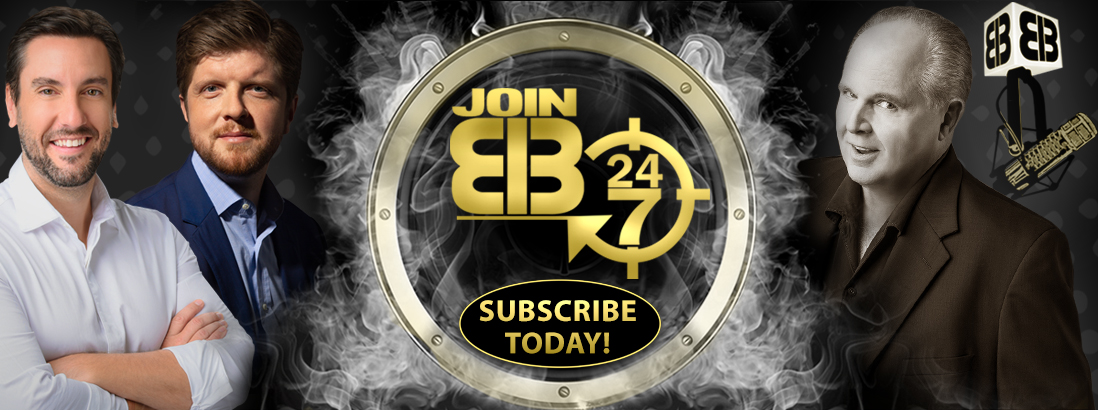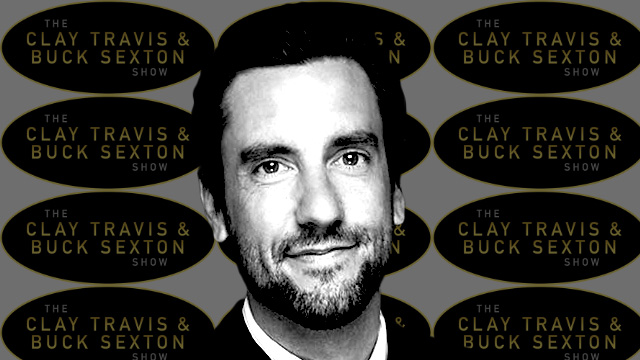My Conversation With Bob Livingston
13 Dec 2021
Archive [January 1999]
It was indeed an honor to speak with the man who, as we spoke, was about to step into the vortex of American power politics as the next Speaker of the House. As I was going to press, the Clinton slime machine, in connection with its spiritual ally Larry Flynt of Hustler magazine, sprang into action, and in its wake Livingston opted not to stand for election as Speaker and to resign from Congress. I decided it was crucial to run the interview nevertheless. First, I think it is important for you to be given a sense of who Livingston is, what would have been the tone of the leadership, and what was his frame of mind so close to his resignation. In addition, there is much gold in the interview — Mr. Livingston confirms my theories as to why the previous leadership buckled, and how he and the rest of the new team had already managed to change that direction and focus. Livingston’s analysis of the problems in the last Congress and prescriptions for how to fix them is dead on, and I am gratified that no matter who is Speaker, I suspect his example will be followed. These ideas will prevail.
Rush: So, do you have any regrets? You’re Speaker-in-waiting now, and you’ve gotten a dose of what it’s going to be like, with The New York Times editorials attacking you because you won’t allow a vote on censure, and the left beating up on you. Are you happy to be stepping into the role?
Livingston: Well, this is the top rung of the ladder for anybody who has made a career out of Congress, and it’s just the crowning achievement for me in terms of what I might have aspired to. Frankly, I never dreamed I would get here. I’m getting the fire-hose treatment. I’ve got to learn a heck of a lot.
Rush: Are you surprised? Was there actually some belief that if the old leadership was somehow vanquished that the fire hose, as you say, would not be trained on the new leadership? Or did you understand that it doesn’t matter who the leader is, he’s still going to get it?
Livingston: When I was speaking of the fire hose, I was speaking about all the hoops to go through to get into the office on January 6. I’ve gotten tremendous cooperation from Newt Gingrich. But in answer specifically to your question, am I surprised that the arrows all already pointed at me? Of course, not, no. That’s the nature of this job. Newt Gingrich got lots and lots of attacks over his four years, and I, as Speaker, have to expect that I’m going to be the victim of a lot of attacks.
But the fact is that Newt was extraordinarily talented. He had so many more talents than I possess, that I can’t expect to walk in his shoes either as a lightning rod, or as a visionary. But I do think that I bring some talents to manage the House with a little bit more hands-on attention. And after this business of impeachment, I think we have a chance to try to cross some lines that haven’t been crossed in the not-too-recent past.
Rush: I’ve heard you say a couple of times that you’re going to bring a better management style, and I know a lot of people would like to know specifics of what was going wrong. I think to the extent that you could illuminate some of that, people would have a better understanding of what changes you intend to bring about. Because the management of the House is something few people are taught about in school. What was not happening that you felt needed to happen in order to smooth things out?
Livingston: First of all, anything I say shouldn’t be construed to be criticism of Newt.
Rush: No, I understand that totally.
Livingston: But I’m a legislator. I learned at Newt’s knee and at his behest, as Chairman of the Appropriations Committee, how to pass bills. I think what happened was, we were setting too many goals and looking too far out into the future — without regard to accomplishing some of the more near-term goals that should have been accomplished. We made some mistakes in just not getting the daily business of the Congress done.
Rush: Such as?
Livingston: Well, let me go one step back. The tax bill, the balanced budget bill that we persuaded the President to sign, was a monumental achievement. Here we’ve got the leader of the Democratic party, the President of the United States who in his first two years raised taxes, attempted to socialize medicine, and incrementally increased the power and scope of the United States government, who got sat back on his haunches by the American people when they elected a Republican Congress in 1994, and we persuaded him to use our rhetoric — your rhetoric — to say that “the era of big government is now over.” We convinced him to sign an agreement which called for a balanced budget in the year 2000 — and within months, actually because of our actions over the last four years, managed to hold the line on spending so that we didn’t have to wait until 2002. We had only to wait until 1998, and actually balanced the budget. Yet with all that success, we just changed the subject, and convinced the American people that we hadn’t done anything.
It was a monumental achievement, and had we concentrated more on the day-to-day business of the House of Representatives, passing our budget bills, keeping our spending down, rolling back taxes, and not getting embroiled in this ongoing Clinton fiasco to the extent that we just didn’t pay attention to anything else, I think that frankly, the American people would have gone to the polls very grateful that we balanced the budget, gave them the first tax reduction in 16 years, and did the people’s business honestly and conscientiously and efficiently. But we just didn’t sell ourselves.
Rush: Would I be correct in assuming that when you say doing the House business, you would attach the word “incremental” to it? I don’t mean that negatively. I mean, get what you can, when you can, stay focused on advancing the agenda. Is that what was lost?
Livingston: That’s precisely right. Let me give you another example of how we messed up. We got embroiled in a transportation bill that was very expensive, albeit it would build a lot of good highways around the country. But we spent a lot of time on that. We spent a lot of time in a very unnecessary budget battle between the House Budget Committee and the Senate Budget Committee, promising tax reduction that we could never deliver with this President, looking out ten years instead of looking at what was happening this year. In the process, by dragging that battle out, we delayed our appropriations bills and failed this year to actually pass our bills and bring them in under budget.
As a result, all the bills got shoved off to the end. We ended up doing eight bills at the end of the year, all at once, in one big package, and it cost us $20 billion more than we intended to spend in the first place. That wouldn’t have happened if we had simply got our appropriations bills out on time.
Incremental gains, working with some degree of realism about the process, would have saved money, and would have allowed us to draw attention to the fact that we had balanced the budget for the first time in 30 years and cut taxes for the first time in 16.
Rush: Well, I’m curious — what was going on? Because during the first six months of the Lewinsky mess, you couldn’t find a Republican to comment on it at all, and wisely so — though now you’re being blamed for all the comments you weren’t making. But still, what was going on?
Livingston: I think in our leadership there were differing comments. Some people were saying we’re never going to comment on it. Then we were going to always comment on it. And then we weren’t going to comment on it. In the meantime, we really did have a budget battle that didn’t amount to anything. Look, we got the President to agree not only to a balanced budget, but to balance it by the year 2002 — and then within months after that agreement, actually produced a surplus. Instead of sticking to that agreement, we started arguing about a trillion dollar tax cut over the next ten years.
Who knows what’s going to happen in ten years? We knew we had a surplus this year, and we should have been paying attention to how we cut taxes, or at least apply the surplus from this year. But we weren’t doing it. As a result, we fought over the surplus. We had a division of opinion between the House and the Senate, our budget committees weren’t together, and the debate raged on literally for months. In the meantime, our appropriations bills couldn’t start, let alone finish.
Another factor was that we had scheduled too many holidays. By late July, we had too much time off. We weren’t doing legislative business, and by the time we woke up, there wasn’t any time to complete the appropriations bills, and we had to package them all in one. We had no leverage against the President once we found ourselves in that dilemma.
Rush: Exactly.
Livingston: The President said, if you want to get out of town, you’ve got to pay the price. And we ended up paying a terrible price.
Rush: I can tell you that the view that’s shared by a considerable number of people who read my newsletter and listen to the radio program, is that the scheduling of those few working days was precisely because the leadership was simply cowed. They were afraid of Clinton. They didn’t want to engage Clinton because they feared a) they would lose, and b) they would be further tarnished as “extremists” every time they engaged him. So the idea was — and this is a theory, you can confirm it or deny it — work as little as you can, and that way we’re going to take fewer hits. So it seemed as if we were always on defensive, despite the fact we ran the House and the Senate. That puzzled a lot of people, and made a lot of people mad.
Livingston: I won’t dispute that. I felt the same way. I’m not just saying that as a Monday morning quarterback; I had a conversation with our leadership in November a year ago, in which I looked at the prospective calendar. I said, we can’t do our business with this calendar; you’ve got to get the business done. But it was a strategic decision that was made.
Rush: Implicit in the theory was: Okay, we’ll score big in the November elections, and we’ll have even more votes, and then next year we’ll take him on. But sitting around waiting for something good to happen to you while something negative happens to your opponent is a hands-off approach. You talk about a price being paid — it was a price paid.
Livingston: Cost us 20 seats.
Rush: It did.
Livingston: Look, I’ve got to say this. Newt Gingrich has been a friend of mine for 20 years. Coincidentally we got our advanced degrees from the same university in the same month, May of ’68 — though we didn’t know each other then. When we came to Congress, we sat next to each other in the Public Works Committee. He went on to become the revolutionary, I went on to be the institutional committee person. But we were both conservatives. We shared the same goals, and today we are good friends. He’s been magnificent in helping me through this transition. His staff has been extremely cooperative.
But because we didn’t do what we were supposed to in the elections, because we were expecting to pick up 15 seats and we lost five, clearly the people were disappointed. As a result of that disappointment, I now sit prospectively as the next Speaker. We are still friends, and I look to him for help and assistance. I don’t mean to criticize my friend Newt Gingrich because I still think he has a lot to offer the American people in the future, as well as in the past.
Rush: I understand. Besides, I’m asking the leading questions. I happen to think that a lot of this became too personal. Newt began to think that all of this was about him, and in his effort to not look so bad, the business of the House got involved. It’s an understandable human thing. Nobody wants to be hated and despised when you’re not what they say you are. But it’s obvious that playing defense the way we did, scheduling a very light workload, sitting around figuring on the out-of-power theory, that in every off year elections that you pick up seats, was flawed. Early in the year you could see it was flawed, and as you got to the election, you could see it was flawed.
Livingston: It was not an offensive strategy, and it was not one which presented a degree of clarity — so we could show the difference between us and them. It was not one which allowed us to crow about our significant, significant accomplishments. Welfare reform, balancing the budget, tax reduction, reform of the irs, are all things that we should be very proud of, and had we campaigned on them, that would have gained us a lot more seats. But it was obviously a strategy geared toward proclaiming the deficiencies of this President, and it didn’t work.
Rush: I’ve got to tell you this — and to the extent that your leadership is already in place, you should take it as a compliment. I took a bunch of phone calls today. As we do this interview, it’s December 14, the Monday following the Judiciary Committee’s vote to send Articles of Impeachment to the whole House. And I have to tell you, Mr. Speaker, the difference in opinions expressed by virtually every Republican caller today, as opposed to two weeks, two months, and a year ago, could not be more profound. Because of two things: the actions of the Republicans on the Committee; and you.
It’s like night and day, and it didn’t take a PR campaign, it didn’t take a big TV blitz. All it took was a bunch of people, you and the members of the Judiciary Committee, deciding that they were going to be driven by the right thing to do. I had people calling me today saying that they’re proud to be Republicans again. They are just ecstatic. They think most Americans are going to wake up and notice the fact that these people are putting their jobs on the line to do the right thing where this impeachment vote is concerned. And by standing fast on and refusing this whole censure business, a lot of credit comes your way, too.
This is all people on the Republican side have been asking for — for two years — is: Just do the right thing … and we’ll stand with you. We’ll send you the money. We’ll be behind you. And I must congratulate you and thank you at the same time, because this is already off on a far different positive step than people have seen in a long time.
Livingston: I sure hope they stay that way. I have always believed that good policy is good politics. And principled policy is good politics. You know, I ran in an area that was three percent Republican. Yet after my second race, I never have had a contested race since — well, it’s been contested, but haven’t been severely threatened. I think the reason is that when I say something, I mean it, and people know that In prepared to stand behind it. I don’t intend to change that in my role as Speaker. I’d like to hope that people will deal with me uprightly and fairly, and if they do, I intend to respond to it in kind. That applies to the Democrats as well as Republicans.
The fact is, we’ve got to meet more frequently. We’ve got to at least talk with one another, and understand the things that divide us. We’ve got to fight out our differences on the Floor, but we don’t have to take that into personality. I’m honored to be a member of Congress, and I want every member, Republican, Democrat, or Independent, to be honored as well, and to be proud of what we do. We do the people’s business under this great Constitution in the greatest country in the world. And I just want to see to it that people know we’re working honestly and efficiently, regardless of our philosophies.
We can debate the issues, but we have to stand up for our principles. And if we do, I think my principles, founded on the Constitution, of less government, more freedom at home, lowered taxes, a strong national defense, local control of schools, are issues upon which I can run any day of the year in any election for infinity and win. But there needs to be clarity of principle, and people have to understand exactly what we’re talking about. They have to know we’re not going to connive in order to advance our cause.

Rush: The left is saying your Speakership is already doomed, since you’ve stated an unwillingness to allow a vote on censure. I want to get your reaction to a theory I have. I just mentioned that there seems to have been a 180-degree turnaround in affection and support among Republicans out there for Republican members of the House. And it’s due to this no-censure-resolution move, and that, as you just said, you’re going to follow principle.
When you’re doing the right thing, as you’re clearly doing with the censure resolution and as the Judiciary Committee Republicans obviously did, this will get legs of its own. Spin doctoring and all of the attempts to repackage this on cable TV will be much more difficult. If you get into a spin war, a PR war, “I can outspin you,” you end up sacrificing your principles, and they end up winning. But once truth and principle and doing the right thing are leading the way, it’s much tougher to attack. That’s why everybody’s so enthused about the last few weeks.
Livingston: I agree with you. And we didn’t take this step with this procedure casually or thoughtlessly.
Rush: Obviously not.
Livingston: We’ve known for some time that we were just going to have to do what the Constitution demands. We can’t back up. We’ve just got to go forward. And it’s not a matter of polls. As you said, it’s doing what’s right, and the rest has to take care of itself. And I believe it will. With all this spin, all of this criticism from the pundits who know so much about how things are going to turn out, who are predicting our doom, I’m reminded of the book that got me into politics. Ayn Rand’s Atlas Shrugged. Everyone said that John Galt was wrong. All the press was convinced of it. He was the individualist that the pundits and the government bureaucrats and the socialists all disdained. But the fact was, he was right, and he won out. Truth will win out.
Rush: You’ve got your full House vote on impeachment coming up. And The New York Times says this is your first test of power. Do you view this as your first test of power?
Livingston: I guess it is. I didn’t ask for this battle. I was dealt it. And I’m going to play it out as I see that I must. We’re not lobbying members on the merits of impeachment. We’re allowing them to make up their own minds. But we are lobbying members on procedure. No chair has ever been overruled since I believe 1916, when Clarence Cannon, the Speaker of the House, stepped down. I’ve got to rely on the majority that elected me Speaker nominee just a few short weeks ago, to stick with us. I expect they will. If they don’t, then maybe I won’t be Speaker.
Rush: For those who don’t understand, could you explain. You’re not twisting arms on the impeachment resolution, but you are on the rules.
Livingston: We do expect party loyalty on the rules, which is simply a matter of procedure. Basically that says in essence that you can vote your conscience on impeachment, but censure is not envisioned by the Constitution. Censure is a punishment. Censure and a fine — which is clearly illegal under the rules of Bill of Attainder — are issues for the Senate to determine.
Impeachment, contrary to what most Americans appreciate, is nothing more than a charge in the House of Representatives. We either impeach or we don’t impeach. We charge the President or we don’t charge him. And if we charge him, if we impeach him, then the Articles of Impeachment go to the Senate for trial — just as a bill of indictment would go to a jury.
It’s for the Senate to try the fact. If they decide that the President shouldn’t be thrown out of office, they can always entertain a lesser penalty, like censure, or reprimand, or a slap on the wrist. That’s within the Senate’s jurisdiction to determine. But it’s not ours.
We are not penalizing the President. We are simply saying that there’s sufficient cause to believe in this case that he violated the law like any other citizen. But unlike any other citizen, he is the President of the United States, he’s the chief executive officer, and the Constitution doesn’t allow us to indict him. They do allow us to report out, and vote on, Articles of Impeachment. If we have a majority of the votes he will be the first President since Andrew Johnson to have Articles of Impeachment reported out on him.
As we speak, I don’t know whether we do have the majority of the votes, because we’re not whipping the vote. We are leaving it to the consciences of the individual members on the substance of impeachment. But in terms of rules, whether or not to entertain censure or any other punishment, we’re saying that’s all out of the jurisdiction of the House of Representatives, and therefore you must maintain the jurisdiction. Vote for the rules of the House, vote for regular order, as the Constitution and the rules of the House envision them, and confine your deliberation to the question of whether or not the President should or should not be charged under Articles of Impeachment.
Rush: I guarantee you that the vast majority of Republicans in this country stand up and applaud every time you say that. It represents a huge turnaround. I’ve also been thinking about censure. Let’s say the House did pass a censure resolution against all advice. Don’t forget the Supreme Court says the line item veto is unconstitutional. I envision some Democrat saying, “I don’t even think this is Constitutional.” So they file a lawsuit, the Supreme Court says you’re right, Congress can’t even do that, and they wipe it off the books.
What puzzles me about this is, here is a man accused of perjury, and he doesn’t want a day in court to protest his innocence; he wants to be punished for it with this little slap on the hand called a censure. Which leads to my next question. We have a battle with some so-called moderate Republicans, who don’t seem to be able to figure this out. How are you going to bridge the gap that exists between the conservatives and moderates on the Republican side? These moderates are being hailed as the peacemakers, the power brokers. The press is making these guys feel really important. Their heads are swelling to the point that their skulls may not be able to contain their egos. You have a tremendous challenge here.
Livingston: Well, no, I don’t. I think that all I have to do is point out what they already know. And that is, roughly 30 percent of virtually every district in America wants this President impeached — in the full meaning of the term. That 30 percent believe he ought to be impeached and kicked out of office. I would daresay that 80 percent of that 30 percent are Republicans. So any Republican running for office has to recognize that those are his core supporters, in any district. This is a moment of truth that every member of the Republican conference has to face. I didn’t create that situation. That’s just a fact each member has to deal with, and it makes it terribly troublesome for them, in the event that they’re thinking about not voting for impeachment.
Rush: In the latest ABC-Washington Post poll, 58 percent of Americans say that if the whole House approves articles, 58 percent want him to resign rather than go through a trial. Also in that poll, 80 percent agree he has committed perjury.
Livingston: There you go.
Rush: But beyond impeachment, as the business of the House is undertaken, under your speakership, you don’t envision any real problem with the moderates?
Livingston: No, I don’t anticipate any problem with the moderates, because I’m not pitting myself against them. I’m not imposing my views on impeachment upon them, other than to point out the reality of the problems. We are asking for loyalty on the rules, but that’s nothing more or less than every Speaker asks for from his conference. Without loyalty and fealty under the rules, a majority cannot function. They might as well turn the reins of power over to the Democrats, and then neither the moderates nor the conservatives would be subcommittee and committee chairmen.
I think that they know that, and for that reason I don’t anticipate trouble. I have always been able to reach out and deal with people of opposing parties, philosophies, and whatnot. I think I understand the legislative process, and I understand that I can’t win all the time, and that it takes compromise to prevail in this legislative system of ours. Some of my friends on the conservative side want to win 100 percent of the time.
Rush: That’d be nice.
Livingston: Yes, it would be nice. But they get frustrated when they have to spot a few. The fact is, in order to maintain a majority, the people on your team have different interests, and everybody must have some victory or else they’re not going to have much interest in being a part of the majority.
Rush: I hope you succeed in persuading them on those grounds. Also, let me say here that all of us wish you the absolute best. We’re behind you, and praying for you. A lot of people are already enthused, and have a great sense of what the future’s going to be, simply because of the way you’ve held fast.
Livingston: Thank you, Rush. I need the good wishes, but I need the prayers more.
Recent Stories

De Blasio Imposes Vaccine Passport Mandate In NYC test
This is an excerpt that Jaime updated. ffffffffffff

Buck Draws Heat For Speaking Truth About Simone Biles
I just wanted to establish what the current president was saying back on ABC News in March to George Stephanopoulos about his feelings on Governor Cuomo.






